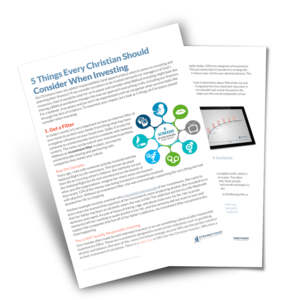A good man leaves an inheritance to his children’s children, but the sinner’s wealth is laid up for the righteous. – Proverbs 13:22
Do you want to finish well? Would you like to create a lasting legacy? Is it important that you set a good example for generations to come?
The above verse can be interpreted as passing down financial wealth, passing down your values, or possibly both. Let’s look at practical ways that we can pass down a rich inheritance of values and wealth to our children and grandchildren.
Passing Down Wealth
Treat Heirs Uniquely, Not Necessarily Equally
Let me start our conversation by stating that you should treat your children uniquely, not equally. If you’re like me, you went into parenthood with the assumption that your children would be treated equally. You would discipline them the same, reward them the same, and talk to them the same. Then, something crazy happens when you have your second child. The second child is COMPLETELY different from the first! Suddenly, you’re faced with the reality that the way you disciplined your first child just won’t work for the second. The rewards you used to praise your firstborn have no value to the second-born. What’s going on here!?
I realize this can be a tough subject. Maybe you CAN treat your children equally when it comes to passing down wealth, but be sure to consider their unique attributes first. God has custom-built each and every one of us. We all have our own tendencies and habits, strengths and struggles. As an example, would it be wise to split an inheritance 50/50 immediately with two sons that are very different in nature? Son #1 that has a close walk with the Lord, gives regularly at church, and has a history of wise financial stewardship will likely be fine. What about the other son who struggles with alcoholism or addiction? What about the son who has habitually wasted their money on frivolous items while they neglect the more important matters of life? What about the son who refinances their home every 3 years just so they can pay off credit card debts that they continue to run-up on 4-wheelers, eating out, or fishing trips? Should these children be treated equally or uniquely?
If we are being honest, leaving a large sum of money to a child that is undisciplined can ruin their lives. They might use the money in a way that actually causes more harm than good. This is why we must learn to treat our children uniquely, not equally. At the very least, consider putting legal documentation in place to protect an irresponsible child from blowing it all at once.

